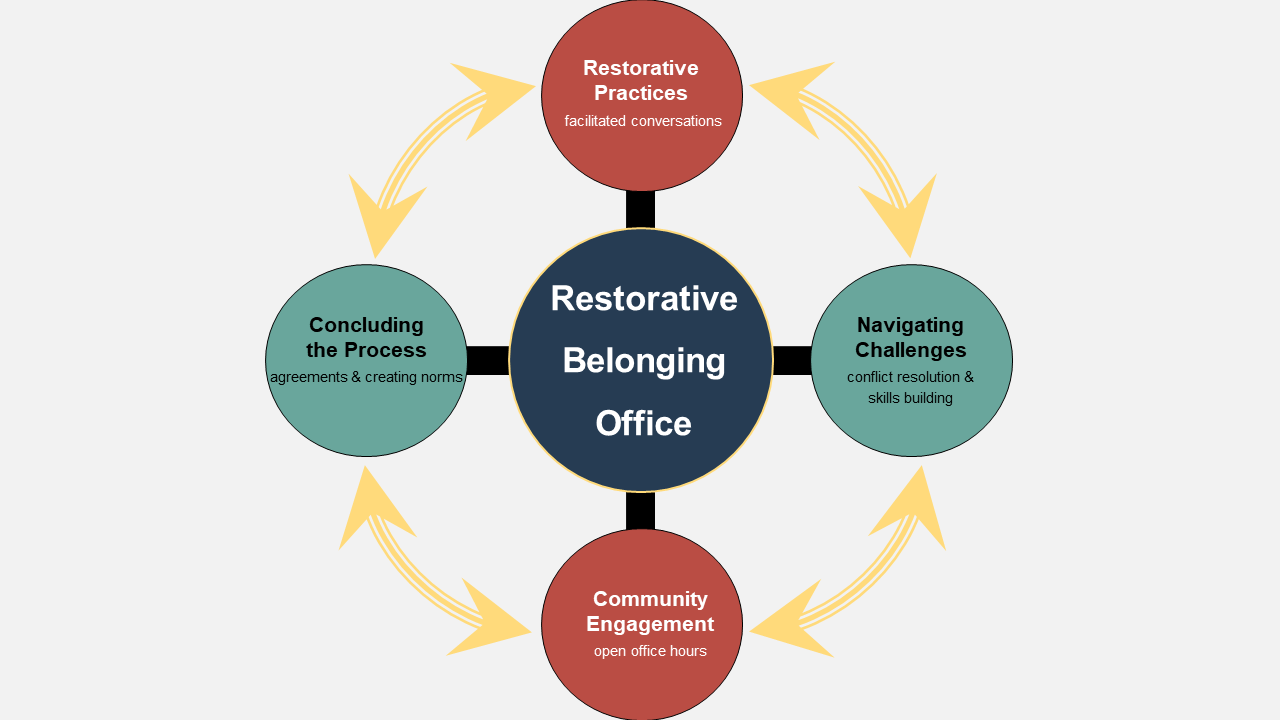Restorative Belonging at PCC
Interested in learning more?
Have questions, or are you dealing with a situation for which a restorative approach may be helpful? Fill out the intake form below and someone from our office will contact you.
Intake Form
Seated in the Culture, Transformation & Development department within the division of People Strategy, Equity & Culture, the Restorative Belonging office was founded to promote and uphold the principles of belonging, equity, diversity, and inclusion across PCC’s workforce. The Restorative Belonging office aims to foster, within the PCC workforce, a culture of belonging and engagement, and to establish restorative approaches to problem-solving, relationship and community building, and repairing harm.
The Restorative Belonging office employs restorative practices to bring an intentional and inclusive approach to building and restoring community. This is accomplished by providing support to employees by welcoming diverse perspectives, finding common ground, and identifying possible resolutions surrounding belonging, diversity, and equity-related issues. The Restorative Belonging office aims to build resilience and fortify relationships across PCC by embedding these practices into PCC culture.
What are restorative practices?
Restorative practices center on identifying and meeting the needs of harmed parties and the community. Restorative practices are fully voluntary and rely on the willingness of all involved to come together and collaboratively engage with and move through the issue together. Restorative practices at PCC support individual agency and discovery of personal strengths in order to create pathways forward.
Examples of restorative approaches may include, but are not limited to:
- Facilitated conversations, establishing community norms, and co-creating agreements
What Restorative Practices are not:
- Restorative practices are not punitive or focused solely on the person who has caused harm; they are focused on the needs of the person(s) who, or community that, was harmed, and rely on the voluntary participation of all parties with a willingness to take accountability and active steps toward resolution
- Restorative practices are not a form of law or policy enforcement; they are educational and recuperative opportunities
How long does a restorative practice take?
When navigating challenges, it is a natural tendency to want to find resolution as quickly as possible. Because the nature of restorative practices is relational, it is important to acknowledge that these processes are nonlinear and can take some time; depending on the particulars, it is not uncommon for a restorative process to unfold over several weeks to months, sometimes longer. Restorative practices are never one size fits all or “one and done;” they allow space for creativity and authentic connection, and ask that we allow the processes to unfold in a timely, yet intentional, manner.

